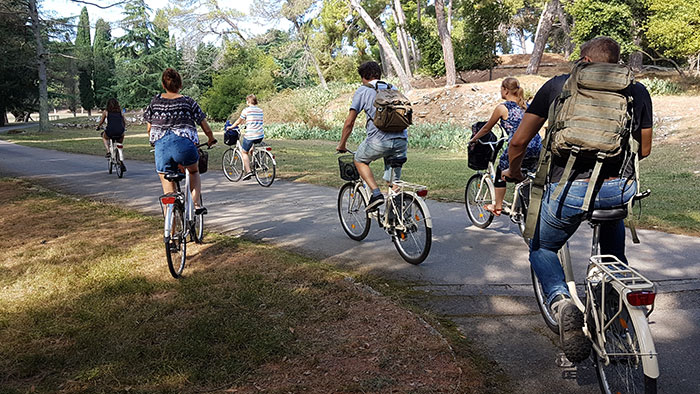The first week of the summer school centred on the sea. The title “Liquid City: Adriatic Life Worlds in Transformation” guided the students through the first week. Together with doctoral students of the Graduate School for Eastern and South Eastern European Studies and local participants from the University of Rijeka, they investigated the development of the Croatian port city of Rijeka.
Each day began with a keynote lecture on one of the main topics of the summer school by an international scholar. In the afternoons, students pursued their own small research projects: What do the inhabitants of Rijeka think about the city’s bid to become European Capital of Culture 2020? Which languages dominate the cityscape in the formerly Italian and Hungarian city?
Croatian, Slovenian and Italian Istria
In the second week, the students travelled through Istria and crossed several national borders. Starting in the Croatian city of Pula, they went to Koper in Slovenia and ended their journey in Italian Trieste. Using the methods of “sensual history”, the students experienced their research object first-hand. In keeping with the motto “Modernity and Identity in Istria”, they examined the legacy of the first cave explorers in Pazin and went out to sea with local fishermen to experience how modernization has changed this centuries-old craft.
As the summer school clearly showed, studying humanities and social sciences does not have to mean spending your days in archives and libraries.
Text: Elite Graduate Program "East European Studies"


